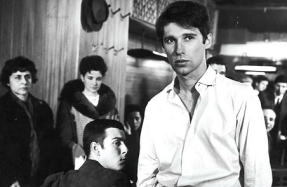Shoplifters


There was a distinct feeling in the air at this year’s Cannes that the Competition jury was under far more scrutiny than usual. The Cate Blanchett-led, female-majority group illustrated a gesture by the festival towards gender equity and a commitment to making structural changes in one of the industry’s most prestigious institutions. In a film culture still steeped in the fallout of #MeToo, the question loomed: how might a jury of mostly women shake up the outcome of the competition? In a program of particularly strong contenders, few predicted Kore-eda Hirokazu would take home the Palme d’Or for Shoplifters, his return to the Japanese family drama after a tepid foray into crime thrillers with last year’s The Third Murder.
Despite Blanchett’s feels a bit like a safe consensus. At different times in his career, Kore-eda has been compared (favourably and unfavourably) to both Ozu and Spielberg, combining the thematic concerns and aesthetic trademarks of the former with the more mainstream, crowd-pleasing attributes of the latter. (At one time Spielberg was primed for an English-language remake of Kore-eda’s , which he awarded with the jury prize when he was president in 2013.) On the Cannes snap-judgement smorgasbord that Twitter transforms into every May, one ungenerous observer proclaimed Kore-eda’s work “fine” and the filmmaker as the “Ron Howard of international art house cinema.” (A considerable insult to both Kore-eda and the term “fine,” as Howard—who should be flattered—consistently bats far below the Mendoza Line.) Inherent in these initial impressions is an unfair assumption that crowd-pleasing somehow precludes formal and narrative rigour, and in the latter regard is among Koreeda’s most accomplished works, a family drama that remains admirably measured even at its most emotionally devastating.
You’re reading a preview, subscribe to read more.
Start your free 30 days





